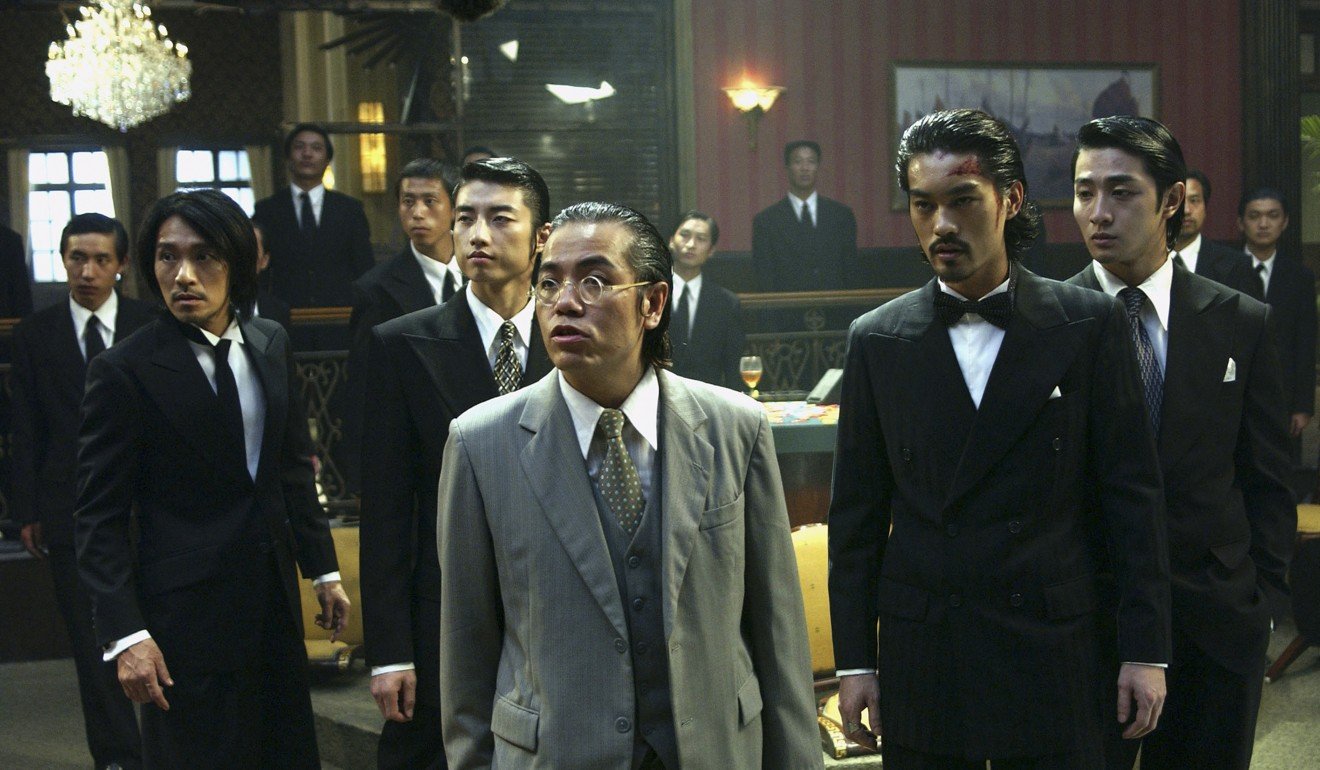
China’s film industry grinds to a halt because of Fan Bingbing tax scandal
Star’s disappearance and concerns about tighter Communist Party controls caused investors to pull the plug on new productions, insiders say
The scandal over Fan Bingbing’s tax affairs coupled with the Communist Party’s tighter controls on China’s entertainment industry will have a significant impact on the number of locally produced films and television shows in the next one or two years, insiders said.
Tenky Tin Kai-man, the head of the Federation of Hong Kong Filmmakers, said the slowdown started about three months ago soon after Fan first disappeared from public view.
“Most of the production work on both movies and television series was put on hold,” he said.
‘I was in pain and agony’: Fan Bingbing speaks out after secret detention
The tax-dodging superstar “reappeared” on Wednesday with a grovelling apology and a bill for 884 million yuan (US$129 million) covering fines and unpaid dues. More importantly for the industry, China’s State Taxation Administration said that in the wake of the scandal it was rolling out a campaign to tighten its tax policies and collection methods within the television and film business.

“In the face of the uncertainty, everybody is choosing to wait and see, rather than start shooting,” Tin said, adding that it was inevitable there would be a severe supply shortage in the months and possibly years ahead.
Fan Bingbing is not the first Chinese film star to fall from grace
The slump in production activity had also had a major impact on Hong Kong’s filmmakers, large numbers of whom work on the mainland, Tin said.
Alfred Cheung Kin-ting, a veteran film director based in Hong Kong, said he expected there to be two years of “cold winters” in China’s film and television industry as investors avoided uncertainty and put their productions on hold.
But he said he was not surprised by the recent revelations about Fan, as tax evasion was commonplace in the industry.
“Before the Fan incident, most production houses on the mainland would use one way or another to dodge tax payments, like offering lump sums off the books to their actors,” he said.
But since then, neither producers nor stars had gone near such deals, he said.
Fan was found guilty of using split, or “yin-yang” contracts to disguise her true earnings from the tax authorities.
Tin said the spurious agreements had been ubiquitous, but now nobody was sure how the mainland authorities would deal with them.
In the meantime, the tax administration has set a December 31 deadline for companies and individuals in the entertainment industry to voluntarily declare and pay any previously evaded taxes. Those that come clean will not face administrative punishment or fines, it said.
Not just Fan Bingbing: five other lawbreaking Chinese entertainers
Aside from the tax scandal, the entertainment industry has been facing growing pressure as a result of the Communist Party’s efforts to tighten its ideological controls.
Under President Xi Jinping’s restructuring and fusion of party and state organs in March, the government’s film censor was merged into the party’s Central Publicity Department.

While Xi laid out the focus and direction of propaganda works at a summer work conference, both Tin and Cheung said many in the industry had no idea how the new regulatory guidelines would affect film and television production.
It was another factor likely to deter investors from committing to new productions, they said.
Last month, the newly restructured State Radio and Television Administration issued a draft regulation for public consultation, which set out more restrictions on the number of overseas producers, leading actors and hosts – including those from Hong Kong, Macau and Taiwan – that can be used in mainland television and online video programmes.
Before the events of recent months, China’s film business had been booming. Box office takings last year rose more than 13 per cent from 2016 to 55.9 billion yuan, with domestic productions accounting for more than 53 per cent of the total, according to the now defunct State Administration of Press, Publication, Radio, Film and Television.
But now the market is facing a slowdown, and Hong Kong filmmakers will be among those who feel the chill.
Fan Bingbing whistle-blower takes jab at ‘huge fraud’ Air Strike
According to the Hong Kong Trade Development Council (HKTDC), the city’s film industry is heavily reliant on overseas revenue, especially from China’s mainland. The two sides have a trade pact which means films co-produced by Hong Kong and mainland companies do not count as imports, on which Beijing imposes a strict quota.
According to the latest figures available from the council, the number of co-production permits issued by mainland authorities in 2016 rose 11 per cent from the previous year to 89.
Of the 60 movies China co-produced with overseas partners last year, most involved Hong Kong, including Andrew Lau Wai-keung’s The Founding of an Army, Stanley Tong’s Kung Fu Yoga, and Hark Tsui’s Journey to the West: The Demons Strike Back.
And according to the HKTDC, mainland-Hong Kong co-productions are “always” in the box office top 10.
Four luxury brands caught up in Fan Bingbing’s fall from grace
Despite the expected downturn, a source familiar with the Hong Kong and mainland film industries said that a number of major collaborations were still in the pipeline for release early next year.
“One of them scheduled for the Chinese Lunar New Year is directed by Wong Cho-lam, with a cast that includes Eric Tsang Chi-wai and Teresa Mo Shun-kwan,” the person said.

Director Cheung said that despite the fallout from the tax scandal involving Fan, whom he directed in Contract Lover in 2007, the incident might provide a catalyst to introduce a curb on stars’ salaries, which had become a huge drain on production budgets.
“Over the years, the payments to superstars have become so high that the quality of the movie is compromised as the rest of the filmmakers, such as scriptwriters and producers, are all underpaid.”
Director Teddy Chan Tak-sum said the incident might also help to drive out speculative short-term investors who had flooded the market in recent years.
He said he hoped filmmakers would now be freer to focus on producing quality films.

